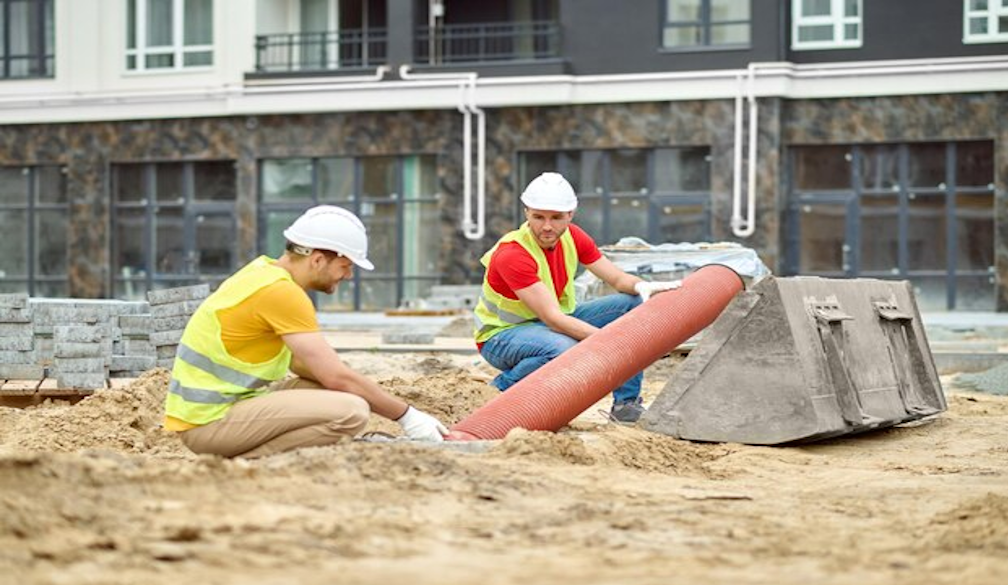Expert Plumbers: Building Blocks of Healthy Communities
- Written by The Advertiser

Plumbers are indispensable contributors to public health, safety, and environmental well-being. Their expertise and skills address critical aspects of water supply, sanitation, and infrastructure development, making them essential members of society. Plumbers hold significant importance in various aspects of modern society, contributing to public health, safety, and environmental sustainability.
Whether it's routine maintenance, repairs, or emergency services, Plumber Mosman Trusts is dedicated to addressing clients' needs promptly and efficiently. Plumbers play a crucial role in society, providing essential services that impact both public health and the overall functioning of communities. Their expertise extends beyond fixing leaky faucets; plumbers contribute significantly to various aspects of modern living.
Necessities of Expert Plumbers
Let’s understand the importance of plumbers, examining their role in public health, environmental conservation, construction, and economic development.
Public Health and Sanitation
One of the primary responsibilities of plumbers Mosman Trusts is ensuring access to clean and safe water. They design, install, and maintain plumbing systems that deliver potable water to homes, businesses, and public facilities. By doing so, plumbers play a pivotal role in preventing waterborne diseases, such as cholera and dysentery, that can result from contaminated water sources.
In addition to supplying clean water, plumbers are instrumental in managing wastewater. Proper disposal of sewage and wastewater is critical to prevent the spread of diseases and maintain a hygienic environment. Plumbers can design and implement sewage systems, including drainage pipes and sewer lines, ensuring the efficient removal of waste from homes and businesses. Plumber MosmanTrusts truly stands out as a beacon of competence and trustworthiness in the world of plumbing.
Environmental Conservation
Plumbers contribute to environmental conservation by promoting water efficiency and reducing water wastage. They install and repair fixtures such as low-flow toilets and water-efficient faucets, helping to conserve water resources. This not only benefits the environment but also leads to cost savings for individuals and communities.
Moreover, plumbers are key players in addressing issues related to water pollution. They are involved in the proper disposal of hazardous materials and chemicals, preventing them from entering the water supply and ecosystems. Through their expertise in managing plumbing systems, plumbers actively contribute to maintaining the ecological balance and safeguarding natural resources.
Construction and Infrastructure Development
In the realm of construction, plumbers are indispensable. They work closely with architects and construction teams to plan and install plumbing systems in residential, commercial, and industrial buildings. This includes laying out intricate networks of pipes, ensuring proper ventilation, and integrating plumbing systems seamlessly into the overall building structure.
Whether it's a new construction project or a renovation, plumbers are essential in connecting buildings to the municipal water supply and sewage systems. Their expertise ensures that buildings meet plumbing codes and regulations, promoting safety and compliance with health standards.
Emergency Response and Disaster Management
Plumbers are often on the front lines during emergencies and natural disasters. In the aftermath of floods, earthquakes, or other calamities, damaged plumbing systems can exacerbate the crisis. Plumbers play a critical role in emergency response by quickly assessing and repairing plumbing infrastructure, restoring access to clean water, and preventing further damage.
Their ability to respond swiftly to plumbing emergencies is pivotal in minimizing health risks and restoring normalcy in affected areas. Whether it's a burst pipe, a sewage backup, or a malfunctioning water heater, plumbers provide essential services to address immediate concerns and prevent long-term damage.
Economic Impact
The plumbing industry contributes significantly to economic development. Plumbers generate employment opportunities, ranging from skilled technicians to support staff involved in the manufacturing and distribution of plumbing materials. Additionally, the plumbing sector fuels economic activity through the installation, maintenance, and repair of plumbing systems in homes, businesses, and infrastructure projects.
Moreover, by ensuring the proper functioning of plumbing systems, plumbers contribute to the longevity of buildings and infrastructure. Preventative maintenance and timely repairs conducted by plumbers extend the lifespan of plumbing components, reducing the need for costly replacements and renovations. This not only saves money for individuals and businesses but also contributes to the overall economic sustainability of communities.
Technological Advancements and Innovation
Plumbers are at the forefront of embracing and implementing technological advancements in their field. From the use of advanced materials in pipe manufacturing to the integration of smart technologies in plumbing systems, plumbers continually adapt to innovations that enhance efficiency, sustainability, and user convenience.
The incorporation of sensor-based technologies, remote monitoring systems, and energy-efficient solutions reflects the commitment of plumbers to stay abreast of evolving industry trends. This proactive approach not only improves the quality of plumbing services but also positions plumbers as key contributors to the ongoing advancement of infrastructure technologies.
Thus, the importance of plumbers extends far beyond mere pipe repairs. They are guardians of public health, stewards of the environment, and essential contributors to economic development. From the construction of new buildings to emergency response efforts during crises, plumbers play a vital role in shaping the quality of life in communities worldwide. Their expertise and dedication ensure the seamless functioning of plumbing systems, fostering a healthier, safer, and more sustainable environment for everyone.








